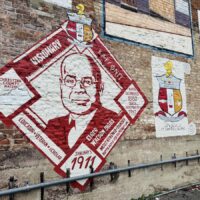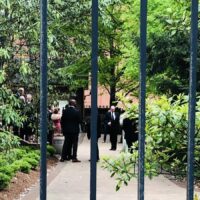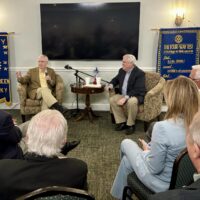One of the South’s early court cases challenging Jim Crow segregation laws originated in Hopkinsville with a local couple. Fannie Lander and her husband, attorney Robert Lander, filed their lawsuit in Christian Circuit Court in 1898 against Ohio Valley Railway.
The dispute stemmed from Fannie Lander’s attempt to use a first-class ticket for the “ladies car” on a train ride from Hopkinsville to Mayfield. Because she was Black, Lander was forced to give up her seat and ride instead in the “smoking car,” known as a generally dirty and inferior car.
When the case went to court, Judge James Breathitt ruled in Fannie Lander’s favor, saying the “separate-coach law” was unconstitutional. The jury awarded her $125 — although the Landers were seeking several thousand dollars in damages.
The railroad appealed the ruling and it made its way to the U.S. Supreme Court. Lander lost the case because the high court held with the Kentucky 1892 law that legalized separate rail cars for Black passengers.
Fannie Lander died on June 1, 1913, at age 48. She and her husband are buried at the Union Benevolent Society Cemetery on Vine Street.
Sixty-six years after the Landers fought the indignity of segregation, the federal Civil Rights Act was adopted in the summer of 1964. Then, two years later, Kentucky became the first Southern state to adopt civil rights legislation. The bill was signed on Jan. 27, 1966, by Gov. Edward T. “Ned” Breathitt, of Hopkinsville. He was the grandson of the James Breathitt Sr., the Christian Circuit judge who had originally ruled in Fannie Lander’s favor.
Jennifer P. Brown is co-founder, publisher and editor of Hoptown Chronicle. You can reach her at editor@hoptownchronicle.org. Brown was a reporter and editor at the Kentucky New Era, where she worked for 30 years. She is a co-chair of the national advisory board to the Institute for Rural Journalism and Community Issues, governing board past president for the Kentucky Historical Society, and co-founder of the Kentucky Open Government Coalition. She serves on the Hopkinsville History Foundation's board.





